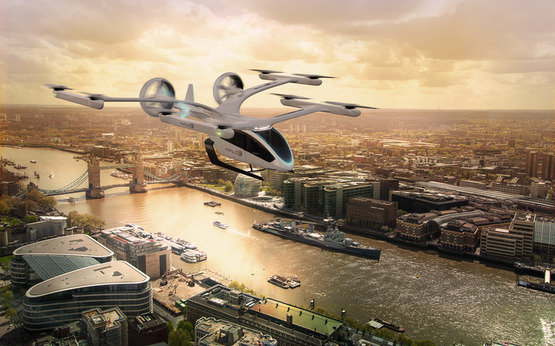Air One, the world’s first air station for electric vertical take-off and landing (eVTOL) aircraft, will open tomorrow in Coventry, UK. Urban-Air Port, a British company dedicated to the development of this type of ground-based infrastructure, announced that this is the beginning of a new era of zero-emission urban transport.
Coventry was selected for its geographical location and its history of automotive and aerospace innovation. For the company, it «represents the ideal place to showcase the future of mobility».
The company will operate the airport for at least one month. This will serve as a model for the more than 200 similar projects it plans to open around the globe over the next five years to meet the growing demand for this type of urban mobility.
The advanced air mobility (AAM) market is expected to grow at a rate of 9% per year over the next two decades. Its development is booming, and a large number of eVTOL aircraft will start commercial operation during this decade. However, the lack of ground infrastructure capable of sustaining operations remains one of the biggest obstacles to the sector’s growth, according to NASA.
In that sense, the new vertiport, as this facilities are called, aims to be an example of how sustainable urban air mobility (UAM) has the potential to contribute to the reduction of air pollution and congestion on roadways.
«Air-One is just the first model in our infrastructure fleet and our order-book is not only open but already growing», said Ricky Sandhu, Founder and Executive Chairman of Urban-Air Port. The company is currently working on airport developments in London, the West Midlands, the United States, Australia, South Korea, France, Germany, Scandinavia and Southeast Asia.
The location of the new airport, close to Coventry railway station, is intended to show how an integrated hub for eVTOL aircraft can operate in a congested urban environment. To this end, a number of demonstrations will take place over the next month.
Future plans
Urban-Air Port’s vertiports are designed to be highly flexible and serve four different markets: passenger air taxis, autonomous delivery drones, emergency management, and defence and logistics operations.
They can be deployed at short notice for aircraft to pick up and transport emergency supplies, equipment and people in a variety of situations.
The company will generate revenue through an infrastructure-as-a-service model, which will allow customers to decide the level of service they need. They will be able to choose to purchase just the infrastructure or contract for a comprehensive service that will include site-specific design and maintenance support.
See also: FedEx plans to test autonomous electric drone cargo delivery with Elroy Air company


Comentarios
Para comentar, debés estar registrado
Por favor, iniciá sesión